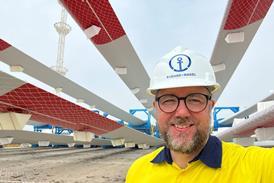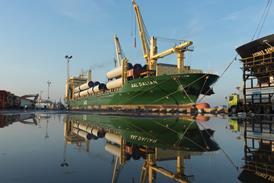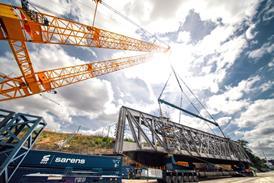March 29 - The ALS (Freight Management Group) has undertaken a significant project cargo movement from Montenegro to the United States.
The project involved the transportation of two industrial forging presses in a consignment that totalled almost 100 break bulk items, the heaviest of which weighed 235 tonnes, whilst the widest was 4.35m and the longest measured 13.6m.
The total consignment also included 35 containers, which included general purpose, high cube and open tops.
The presses were moved around 8,500 km from a site in Montenegro to Firth Rixson's new closed die manufacturing facility in Georgia, USA, in a project named 'Project Thunder'.
The shipment involved the provision of the shipper's own containers, as well as an assortment of load carrying equipment from standard trailers, 5-axle semi trailers, an 8- axle semi-trailer and 24-axle modular trailer; plus cranes and rail wagons for the transport of the heaviest items.
The main challenge faced and resolved by ALS revolved around the transportation of the five heaviest items and various transportation modes were considered.
Transferring the cargo by river using barges was not a viable option as there were no navigable waterways between the site and port. A road option was submitted but not accepted unless bridge-strengthening work was undertaken.
Hence, ALS used the rail option primarily due to the proximity of rail lines at the job site and port of shipmentwith no bridgework or strengthening work required.
Planning for this project commenced in June 2009 with site visits in Montenegro. The job commenced in earnest and movements were carried out over a four month period at the end of 2009.
The project involved ALS offices throughout Europe including: the UK, Holland and Italy. Colleagues from ALS' UK and Dutch offices attended the job site over several weeks to oversee key stages of the project, which moved over a four month period.
Many items only required regular permits, which took a matter of days to organise. However, the application for permission to transport the five heaviest items by road took several weeks and involved route surveys, a full bridge survey, a full risk assessment of the proposed road route and structural surveys of key bridges. ALS and its client Firth Rixson were still following the permit process for the road option when permission to use the railways was granted.
ALS provided on-site support for the final three months of the project. This involved the production of paperwork for each load as the cargo was transported on Carnets, arranging permits, overseeing the loading, arranging the transfer to port, undertaking route and bridge surveys and attending meetings with various government bodies and local authorities to gain approval for the required transport methods.
The project involved transportation movements by road and rail from the site in Montenegro into storage at the port, before transfer to a chartered vessel. Planning for this project commenced in June, 2009.
















